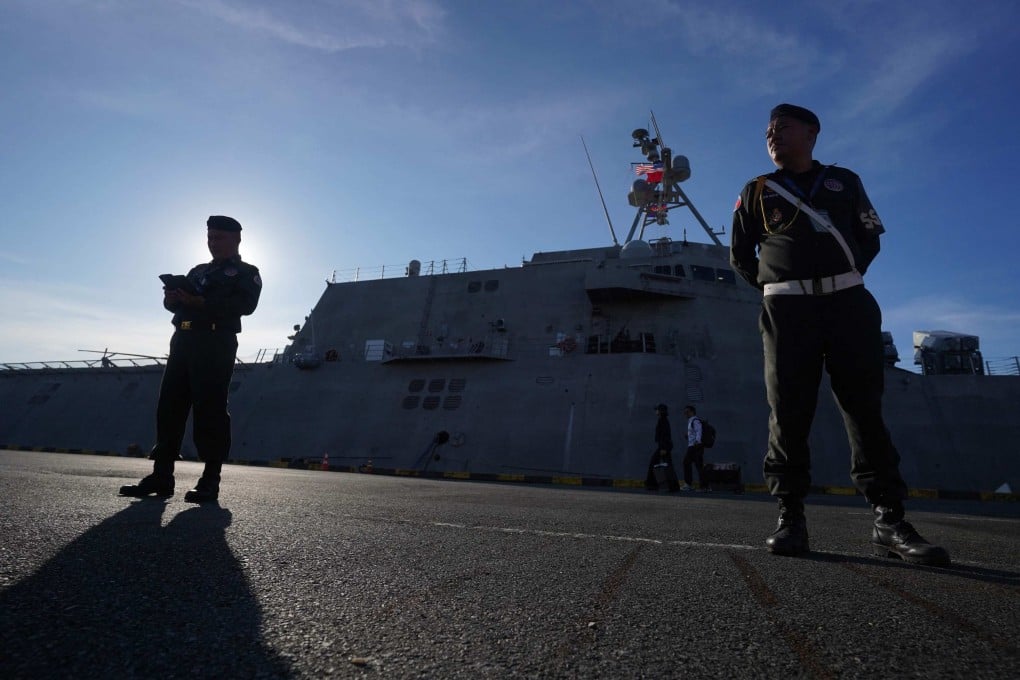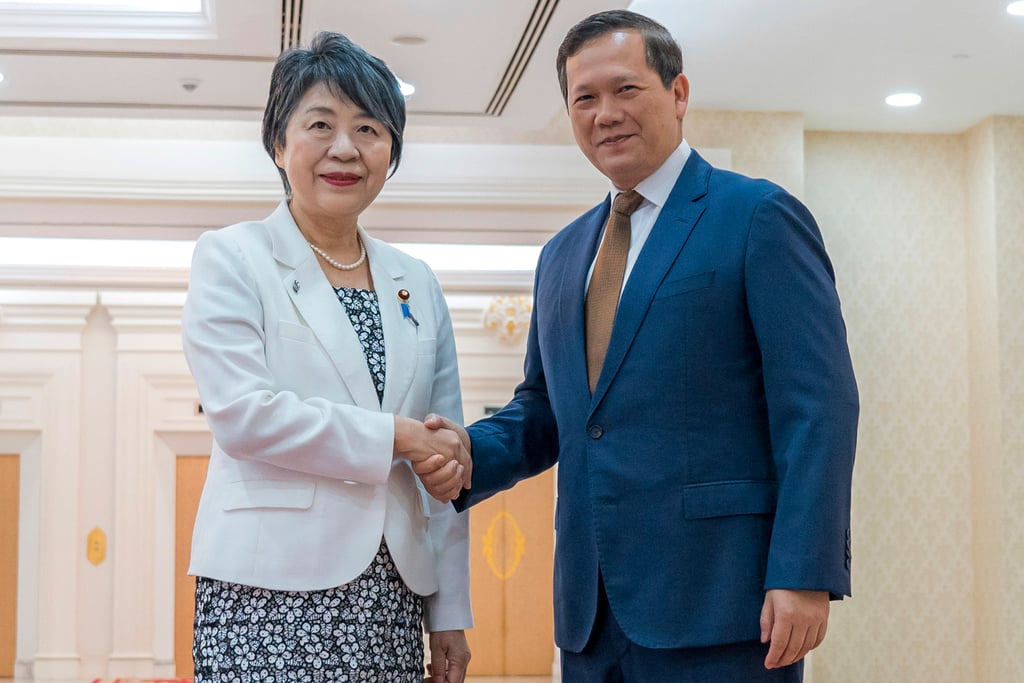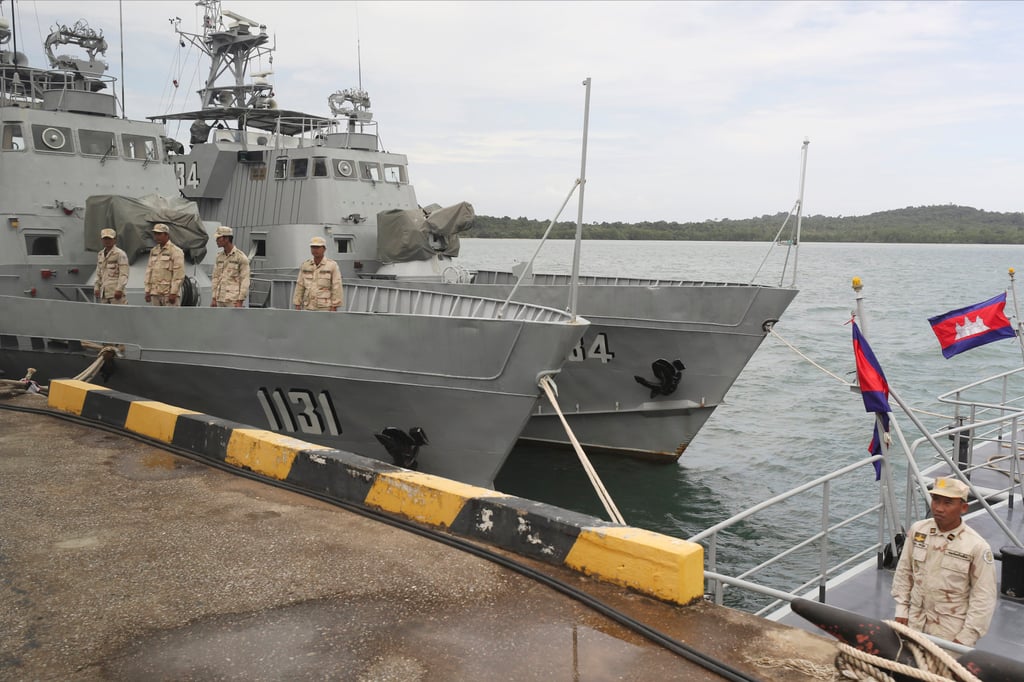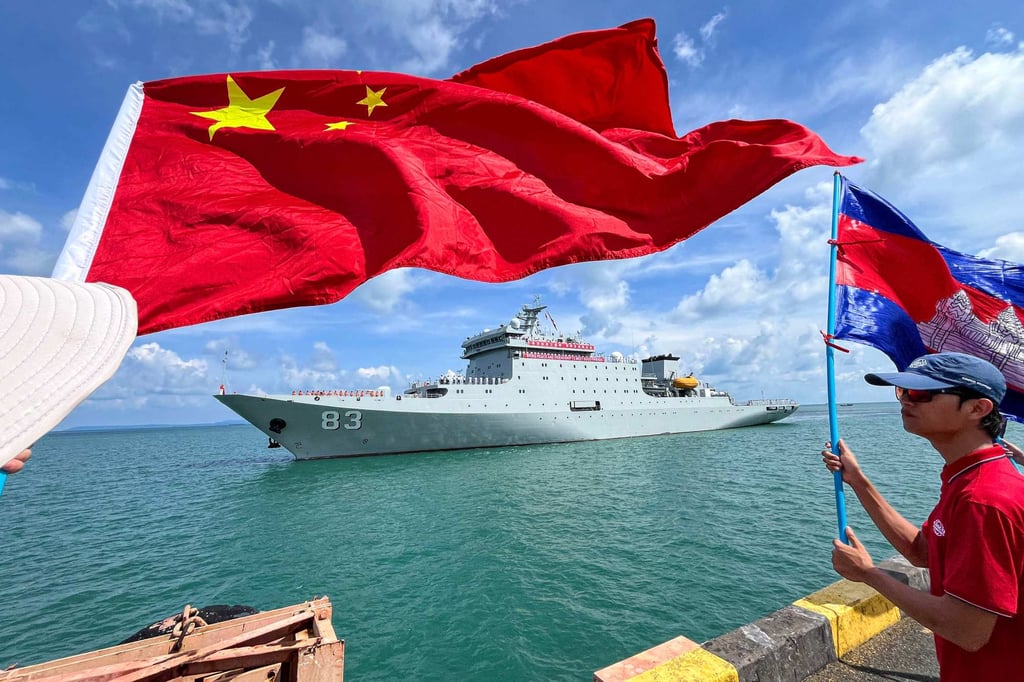The move comes as Cambodia-China ties might have stalled due to Beijing holding up funding for Phnom Penh and concerns about scam centres

Just days earlier, an American warship docked at the southern port city of Cambodia’s Sihanoukville, just several kilometres away from Ream, in the first American military port call to one of Beijing’s closest regional allies in eight years.
USS Savannah commanding officer Daniel A. Sledz said the Americans were pleased to return and be hosted by Cambodia. The warship departed from Cambodia last Friday.
Sophal Ear, an associate professor at Arizona State University’s Thunderbird School of Global Management, said the two developments suggested that Cambodia wanted to have a more balanced foreign policy and reduce its overdependence on China.
“Granting visitation rights to Japan, while still maintaining strong ties to Beijing, demonstrates a nuanced approach to balancing interests,” Ear said. Cambodia’s ability to navigate great power competition would depend on whether it could develop its overall capabilities and enhance cooperation with middle-power partners such as Japan and Australia.

“These nations, with their reputations for fair engagement, could play a pivotal role in helping Cambodia diversify its partnerships,” Ear said. Nonetheless, Hun Sen’s “enduring influence” and the country’s pro-China tendencies could prove to be a challenge for Phnom Penh to adopt such a foreign policy, he added.
“His son’s [Hun Manet’s] leadership may signal a generational shift, but it remains unclear whether this will translate into deeper reforms or a more assertive foreign policy.”
Describing the granting of visitation rights to Japan as a “very strategic move”, Chhay Lim, a visiting fellow at Cambodia’s Institute for International Studies and Public Policy’s Centre for Southeast Asian Studies, said Phnom Penh had consistently leveraged Japan as a hedge between the major powers.
Over the years, Cambodia had tried hard to convince a sceptical international community that it would not grant exclusive access to China’s navy, he said.
In August last year, Cambodia and Japan agreed to strengthen security cooperation, with Tokyo urging Phnom Penh to let its maritime self-defence force (MSDF) vessels visit Ream regularly upon the completion of the base’s revamp.
“Allowing Japan to visit means that it trusts [Tokyo] as a credible messenger to the Western bloc, offering reassurances about Cambodia’s intent,” Lim said, noting that Japan has become the “principal diversification partner” under Prime Minister Hun Manet’s foreign policy.
Granting similar rights to the US was also possible, Lim said, as long as bilateral ties were not soured by human rights issues, long a contentious issue between the two countries.

“We shall wait and see how Trump 2.0 deals with smaller authoritarian states,” Lim said, adding it was unlikely that Cambodia would distance itself from China due to its strategic and economic priorities.
Sam Baron, a research fellow at the Yokosuka Council on Asia-Pacific Studies, said Cambodia hoped to strengthen its position and improve relations with the US ahead of the new Donald Trump administration taking office next month.
“If Japanese ships and officials are able to dock at Ream, inspect the base, and report back to Washington positively, it could present an opportunity to improve relations and address certain concerns about Chinese influence in the near term,” Baron said.
Located on the coast of the Gulf of Thailand, Ream was previously used for several joint naval exercises between Cambodia and the US in 2010. In later years, the base was upgraded with US financial help.
Two buildings at Ream developed with US funding were demolished in 2020, which paved the way for the start of the base’s redevelopment by China in 2022.
Phnom Penh has repeatedly allayed concerns that China could have a permanent military base in Cambodia, citing its constitution banning any foreign military from establishing a permanent presence in the country.

No more Chinese loans?
Reuters reported on December 11 that China had not approved any loans to Cambodia this year, even though it had been Cambodia’s top creditor country in recent years.
Citing Cambodian finance ministry data for the first three quarters of 2024, the report said the funding holdup might signal China’s more cautious approach to investment in Cambodia after a series of unsuccessful or controversial infrastructure projects in the country.
Among them, a Chinese-financed hydroelectric dam in northeastern Cambodia completed in 2018 was said to have undermined the lives and livelihoods of thousands of locals and flooded two tributaries of the Mekong River, according to a Human Rights Watch report in 2021.
However, Phnom Penh has dismissed Reuters’ claims as “misleading and ridiculous”, saying Cambodia and China are currently involved in multiple joint projects, with many more in the planning stages.
Baron said if there were a funding gap, middle powers such as Japan and India could step in to provide financial support to Cambodia.
Lim said that China has focused on ensuring that its Belt and Road Initiative projects were “smaller, smarter, and greener”, adding that it was “aware that many large-scale development projects have faced challenges related to sustainability, especially in Cambodia”.

Arizona State University’s Ear said the decline in Chinese lending could be due to Beijing having yet to establish rapport with the new generation of politicians in Cambodia, including Hun Manet, who took office last August.
Noting that Japan, the US, and multilateral institutions like the World Bank have increased economic engagements with Cambodia, Ear said Phnom Penh must continue to show a commitment to transparency, accountability, and environmental responsibility in its infrastructure projects.
The decline in lending from Beijing might also be linked to Chinese frustrations with scam centres in Cambodia targeting Chinese nationals, Ear added.
In recent years, thousands of Chinese nationals are estimated to have fallen prey to transnational crime groups trafficking people from China to Cambodia.
“Nobody wants Cambodia to be known as ‘Scambodia’, so maybe Beijing is signalling that reining in the scam centres is something that has got to happen before the loan spigot starts to flow again?” Ear said.


No comments:
Post a Comment